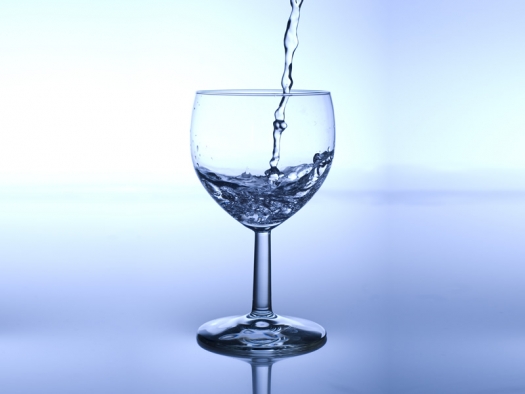waterglass.jpg

Photo by ArtMast, ©2010 / freeimages.com
A businessman in his 60s reports that since he started drinking hydrogen water, he has more energy and his memory is sharper than ever. A runner says it has improved her endurance and sleep, and she has fewer aches and pains.
The daughter of a woman with Alzheimer’s disease noticed rapid improvements in her mother’s ability to remember names and events, and now she’s doing activities such as showering without help and “getting back to her old self.”
A young man awoke from a three month coma following a motorcycle accident with a dire prognosis due to severe cognitive, speech, and mobility problems. Hydrogen water jumpstarted his recovery, and today he is back working as a fitness instructor.
Patients with Parkinson’s disease who drank hydrogen water in a placebo-controlled clinical trial had significant improvements in their symptoms, while the placebo group got worse. And in a pilot study of people with rheumatoid arthritis, it caused notable reductions in joint pain and swelling.
If you’re thinking this sounds too good to be true, I get it. That’s what I thought at first. But the deeper I’ve delved into the hundreds of scientific papers examining the effects of hydrogen therapy, also called molecular hydrogen or H2 therapy, on scores of health challenges, the more I’m convinced this is a true scientific breakthrough.
What Is Molecular Hydrogen?
Hydrogen, #1 on the periodic table, is the simplest and lightest element, consisting of just one electron and one proton. It is also the most abundant element in the universe, the stuff of stars, nebulas, and gas giant planets like Jupiter and Saturn.
On Earth, however, hydrogen rarely exists in molecular form. Hydrogen gas (referred to as H2 because each molecule has two atoms of hydrogen) is so light that it easily escapes our planet’s gravitational pull. And since hydrogen reacts with nearly all other elements, it mostly exists in chemical compound form, such as water, oil, and gas, millions of natural and synthetic chemicals, as well as other organic compounds essential for life.
Rare as molecular hydrogen may be, its small size and other unique properties have inspired innovative scientists to research its potential therapeutic uses, and they’ve come up with some remarkable discoveries.
Why H2 Is So Powerful
First, H2 is an extraordinary antioxidant, a free radical quencher that selectively scavenges the most dangerous and destructive hydroxyl radicals. Hydroxyl radicals initiate their cycle of destruction by stealing electrons from molecules in DNA, proteins, and fats, destabilizing them and setting off a chain reaction of oxidative stress. H2 readily gives up electrons to hydroxyl radicals, which stabilizes them and stops them in their tracks. It also reduces the toxicity of peroxynitrite, another destructive oxidant, and further boosts the body’s defenses by increasing production of natural antioxidants such as glutathione, superoxide dismutase, and catalase.
Second, H2 has beneficial effects on cell signaling and gene expression. It suppresses
TNF-alpha and other proteins involved in inflammation and turns on mechanisms that protect against cell death. But because H2 is selective, it does not scavenge essential redox signaling radicals that play a key role as cellular messengers.
Third, recent studies show that H2-infused water increases the production of a hormone called ghrelin. Secreted in the stomach, ghrelin is best known for stimulating appetite, but it also boosts growth hormone release and has protective effects in the brain, vascular system, liver, and elsewhere.
Fourth, H2 “nano” molecules are able to diffuse through cellular membranes, enter the mitochondria and nucleus of cells, cross the blood-brain barrier, and exert their positive effects in tissues and organs throughout the body.
Therefore, it’s not surprising that benefits of H2 therapy have been demonstrated in animal models and/or human studies in a wide range of conditions, including traumatic brain and spinal cord injuries, Parkinson’s, Alzheimer’s, strokes, heart attacks, vascular disease, diabetes, liver and kidney disorders, autoimmune conditions, and lung problems.
The Best Delivery System for H2 Water
Three primary avenues of H2 administration have been used in clinical research: inhaling hydrogen gas, injecting hydrogen-rich saline, and – the easiest, safest, and most cost-effective method – drinking molecular hydrogen-infused water.
Hydrogen water can be generated by electrolysis (passing an electrical current through water), which splits H2O into O2 and H2 and dissolves it in the water. Water “ionizers,” which sell for thousands of dollars and are supposed to make “alkaline,” “structured,” or “microclustered” water, actually derive their benefits from the molecular hydrogen they produce.
But there’s a more convenient and effective way to make H2 water. Dunking metallic magnesium in water produces a chemical reaction that breaks the bonds in water molecules and yields molecular hydrogen. My first introduction to this method was Hayashi’s Hydrogen Rich Water Stick, a five-inch magnesium rod that you keep immersed in a bottle of water, drink, and refill as needed. The sticks last several months, but my wife assumed the “rock” in my water bottle was trash and threw it away. I remember thinking at the time that someone should come up with a more user friendly product.
Someone did. A company called Purative has perfected a method of making tablets of micronized elemental magnesium which, when dissolved in water, generate a hefty dose (1.6–2.6 ppm) of molecular hydrogen. You simply drop a tablet in a bottle full of water, close tightly, wait 10–15 minutes as hydrogen micro-bubbles are generated and dissolve in the water, and drink.
Doing this once a day approximates the dose used in the hydrogen therapy research – and literally floods the system with free radical-quenching electrons. And because H2 is a safe, natural molecule that is common to the body, you can’t get too much of it.
Molecular hydrogen water has a promising future as a safe, simple, inexpensive therapy for health maintenance, disease prevention, and treatment of our most common health challenges. I’ve added a bottle or two of H2-saturated water to my daily regimen and suggest you consider doing the same. Bottoms up!
To learn more, visit Julian Whitaker's website.
Reference
Dixon BJ, et al. The evolution of molecular hydrogen: a noteworthy potential therapy with clinical significance. Med Gas Res. 2013 May16;3(1):10.
Originally published in Health & Healing, May 2015, Vol. 25, No. 5. Used with permission.


